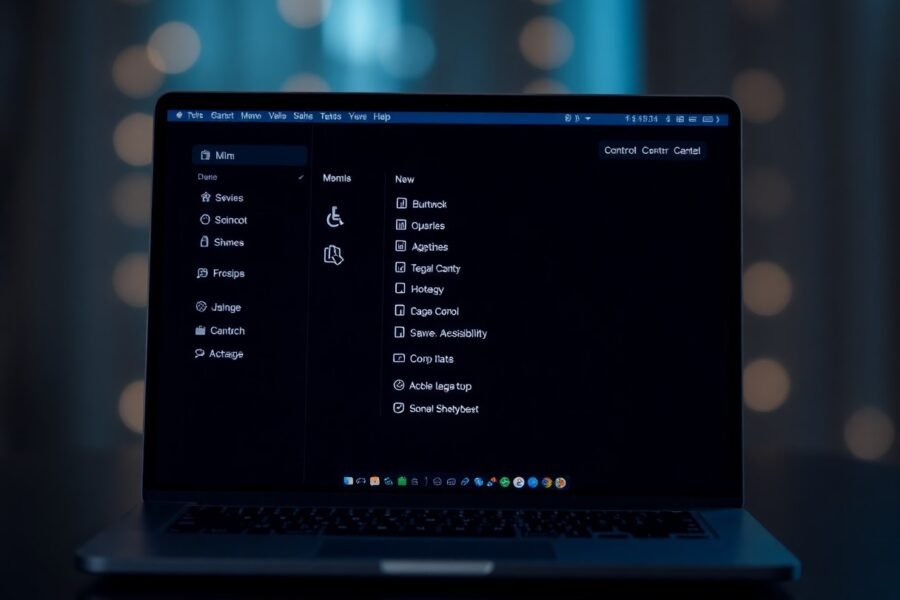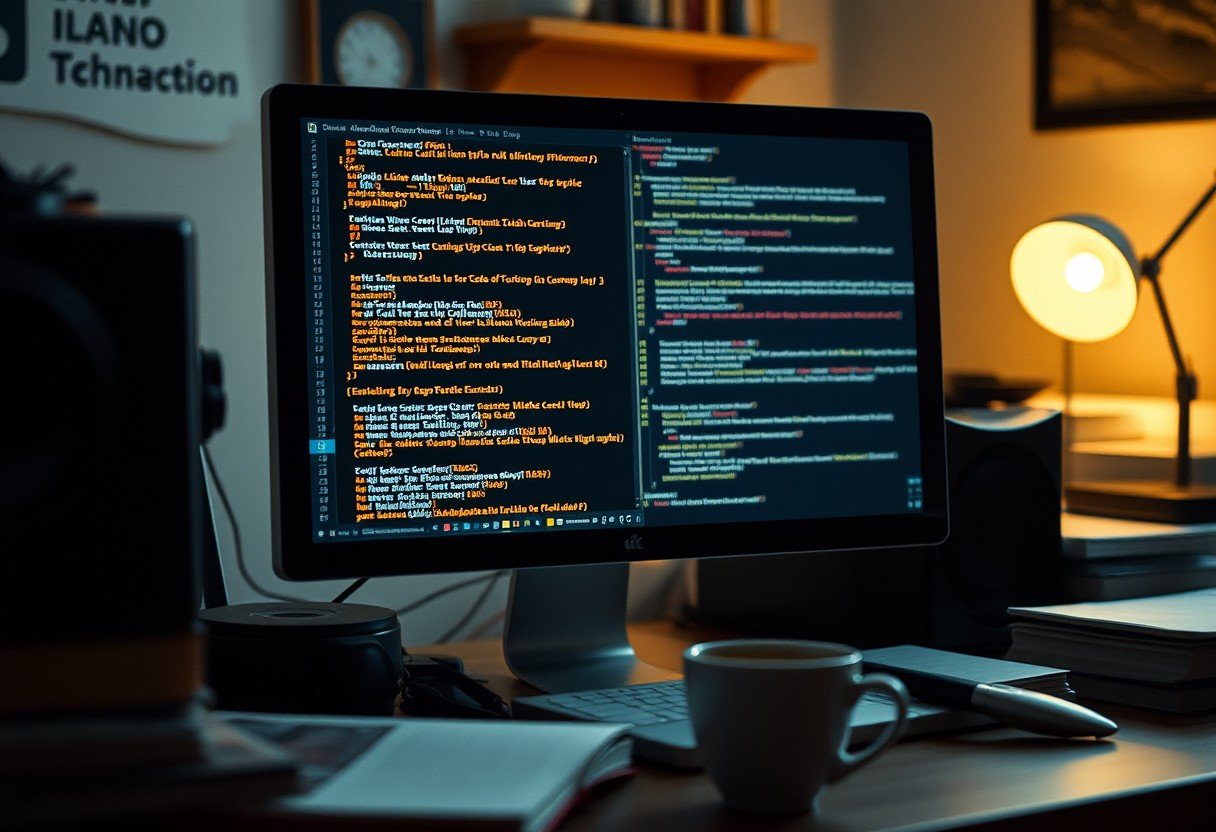In programming, some of the most frustrating bugs are the ones that don’t crash your program. These are known as logical errors, which are mistakes in the code’s reasoning that cause it to produce incorrect or unexpected results while running smoothly. Unlike obvious syntax errors, these silent issues can be hard to spot, making it crucial for developers to understand how to identify and fix them to build reliable and trustworthy software.
What are the Main Types of Programming Errors?
To become an effective programmer, you must first understand the different kinds of errors you might face. While all errors disrupt your program’s intended behavior, they don’t all act the same way. They are generally grouped into three main categories: syntax, runtime, and logical errors.
Each type requires a different approach to solve. Syntax errors are often caught by your code editor before you even run the program, while runtime and logical errors only show up during execution.
| Error Type | When It Occurs | Effect on Program |
|---|---|---|
| Syntax Error | Before execution (compilation) | Prevents the program from running at all |
| Runtime Error | During execution | Causes the program to crash or stop unexpectedly |
| Logic Error | During execution | Program runs but produces incorrect results |
The key difference is that a logical error won’t give you an error message. The program successfully completes its run, but the output is not what you intended. This makes them particularly tricky to deal with.
Why are Logical Errors so Hard to Find?
Logical errors are often called the most insidious bugs in programming because they hide in plain sight. Your code is syntactically perfect and runs without crashing, which can trick you into thinking everything is working correctly.
The problem isn’t the computer; the computer is doing exactly what you instructed it to do. The error lies in the instructions themselves. You might have told it to add when you meant to subtract, or to check if a value is greater than 10 when you meant to check if it was less than 10.
These are mistakes in human reasoning, not in the computer’s execution. This means you can’t rely on automated error reports to find them. Instead, you have to carefully review your own thought process and trace the flow of data through your program to see where your logic went wrong.
Common Causes of Logical Errors in Code
Logical errors almost always stem from a flaw in the programmer’s plan or a misunderstanding of the problem. They can be as simple as a typo in a formula or as complex as a flawed algorithm.
One major source is incorrect assumptions about the data your program will handle. Programmers might write code that works perfectly for expected inputs but fails when it receives something unexpected.
Some of the most frequent causes include:
- Flawed Algorithms: The step-by-step procedure you designed to solve the problem is fundamentally incorrect.
- Off-by-One Errors: A loop runs one too many or one too few times, which is common when working with lists or arrays.
- Incorrect Assumptions: Assuming a variable will always be positive or that a list will never be empty without adding checks for these edge cases.
- Miscalculations: Using the wrong mathematical operator (like `+` instead of `-`) or getting the order of operations wrong in a complex formula.
Thoroughly testing for these “edge cases” is a critical step in preventing logical errors from making it into the final product.
Effective Techniques for Debugging Logical Errors
Since logical errors don’t announce themselves, you need a strategy to hunt them down. The goal is to observe your program’s behavior and pinpoint exactly where it deviates from your expectations.
One of the oldest and simplest techniques is often called “print debugging.” This involves adding print statements throughout your code to display the values of key variables at different stages. By seeing the values change, you can often spot where a calculation goes wrong.
Using a step-through debugger is one of the most powerful methods for finding logical errors. A debugger is a tool that lets you execute your code one line at a time. It allows you to pause the program, inspect the current value of every variable, and watch the execution flow, giving you a clear view of what’s happening inside your code.
Finally, writing unit tests is a proactive way to catch these bugs. A unit test is a small piece of code that checks if a specific part of your main code produces the correct output for a given input. A strong set of tests can automatically alert you the moment a change introduces a logical error.
The Real-World Impact of Incorrect Program Results
In the real world, logical errors are not just minor inconveniences; they can have serious consequences. A program that appears to work perfectly but produces flawed data can be more dangerous than one that crashes, as people may make important decisions based on that wrong information.
For example, a logical error in financial software could cause a company to miscalculate its profits, leading to poor investment decisions or even a budget crisis. The program runs every day without a hitch, but the numbers it provides are silently wrong.
In healthcare, a flaw in the algorithm of a medical diagnostic tool could lead to an incorrect diagnosis, with potentially life-threatening results. The software provides an answer, but it’s not the right one.
Ultimately, logical errors erode user trust. If users can’t rely on the output of your program, they will stop using it, regardless of how smooth and crash-free the experience is. Ensuring your program is not just functional but also correct is essential for long-term success.
How to Prevent Logical Errors in Your Programs
While you can never eliminate all bugs, you can adopt habits that significantly reduce the number of logical errors in your code. The best strategy is to focus on clarity and planning before you even start writing.
Start by making sure you have a crystal-clear understanding of the problem you are trying to solve. It can be helpful to write out the logic in plain English or pseudo-code before translating it into actual code. This forces you to think through the steps without getting bogged down by syntax.
Another powerful prevention technique is peer code review. Having a second pair of eyes look over your code can reveal flawed logic that you missed. A fresh perspective is invaluable for spotting incorrect assumptions or steps that don’t make sense.
Finally, embrace comprehensive testing from the beginning. Don’t just test the “happy path” where everything is perfect. Actively try to break your code by testing it with unexpected inputs, empty values, and extreme numbers to ensure your logic holds up under pressure.
Frequently Asked Questions
What is a logical error in simple terms?
A logical error is a mistake in a program’s thinking. The program runs without crashing but gives you the wrong answer because the instructions it followed were flawed, like using a correct recipe but adding salt instead of sugar.
How is a logical error different from a runtime error?
A runtime error crashes the program during execution, often because it was asked to do something impossible, like divide by zero. A logical error doesn’t crash the program; it finishes running but produces an incorrect result.
Can a logical error crash a program?
Typically, no. The main characteristic of a logical error is that the program keeps running. However, an incorrect result from a logical error could create a situation later on that causes a separate runtime error.
What is a real-life example of a logical error?
Imagine a shopping cart program that is supposed to apply a 10% discount but instead adds 10% to the total price due to using a `+` instead of a `-`. The calculation is performed successfully, but the logic is wrong, resulting in an inflated bill for the customer.
Are logical errors the programmer’s fault?
Yes, logical errors are caused by the programmer’s flawed reasoning, misunderstanding of the requirements, or a simple mistake in the algorithm. The computer is only following the instructions it was given, even if they were wrong.
How can I get better at finding logical errors?
Practice methodical debugging by using tools like a step-through debugger to watch your code execute line by line. Additionally, developing a habit of writing automated tests for your code will help you verify that your logic is correct and catch errors early.









Leave a Comment